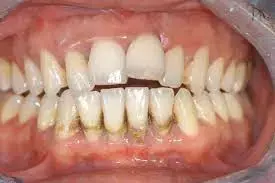- Home
- Medical news & Guidelines
- Anesthesiology
- Cardiology and CTVS
- Critical Care
- Dentistry
- Dermatology
- Diabetes and Endocrinology
- ENT
- Gastroenterology
- Medicine
- Nephrology
- Neurology
- Obstretics-Gynaecology
- Oncology
- Ophthalmology
- Orthopaedics
- Pediatrics-Neonatology
- Psychiatry
- Pulmonology
- Radiology
- Surgery
- Urology
- Laboratory Medicine
- Diet
- Nursing
- Paramedical
- Physiotherapy
- Health news
- Fact Check
- Bone Health Fact Check
- Brain Health Fact Check
- Cancer Related Fact Check
- Child Care Fact Check
- Dental and oral health fact check
- Diabetes and metabolic health fact check
- Diet and Nutrition Fact Check
- Eye and ENT Care Fact Check
- Fitness fact check
- Gut health fact check
- Heart health fact check
- Kidney health fact check
- Medical education fact check
- Men's health fact check
- Respiratory fact check
- Skin and hair care fact check
- Vaccine and Immunization fact check
- Women's health fact check
- AYUSH
- State News
- Andaman and Nicobar Islands
- Andhra Pradesh
- Arunachal Pradesh
- Assam
- Bihar
- Chandigarh
- Chattisgarh
- Dadra and Nagar Haveli
- Daman and Diu
- Delhi
- Goa
- Gujarat
- Haryana
- Himachal Pradesh
- Jammu & Kashmir
- Jharkhand
- Karnataka
- Kerala
- Ladakh
- Lakshadweep
- Madhya Pradesh
- Maharashtra
- Manipur
- Meghalaya
- Mizoram
- Nagaland
- Odisha
- Puducherry
- Punjab
- Rajasthan
- Sikkim
- Tamil Nadu
- Telangana
- Tripura
- Uttar Pradesh
- Uttrakhand
- West Bengal
- Medical Education
- Industry
Longitudinal change in periodontal disease status linked with incident diabetes

Longitudinal change in periodontal disease status is associated with incident diabetes risk according to a recent study published in the Journal of Clinical Periodontology
The presence of periodontal disease (PD) at a single time point has been suggested as a predictor of diabetes risk, but whether changes in periodontal disease status are associated with altered risk of diabetes has yet to be reported on a population scale.
This study investigated whether recovery from or development of periodontal disease in a population is associated with an altered risk for diabetes occurrence.
Data of subjects who received health screening from 2002 to 2007 were obtained from the National Health Insurance Service - National Health Screening cohort database of Korea. Patients with a history of diabetes were excluded. Changes in periodontal disease status were determined from the first two health screenings. Study subjects were divided into 4 groups according to the changes of periodontal disease status: PD-free, PD-recovered, PD-developed, and PD-chronic. The outcome was the occurrence of diabetes.
Results:
- Overall, 111,611 subjects were included for analysis. During a median follow-up of 9.10 years, diabetes developed in 6,102 subjects.
- The adjusted hazard ratios (HR) for incident diabetes across various periodontal disease change groups (in reference to the PD-free group) were: periodontal disease -chronic group=1.096 periodontal disease -developed group=1.073; PD-recovered group=1.019
- The subjects who recovered from periodontal disease had a lower diabetes risk than those who had consistent periodontal disease, whereas those who developed periodontal disease had a higher risk for diabetes than those who remained periodontal disease -free.
Thus, longitudinal change in periodontal disease status is associated with incident diabetes risk. Future intervention studies are necessary to determine if periodontal disease treatment can prevent incident diabetes.
Reference:
Recovery from chronic periodontal disease is associated with lower risk for incident diabetes by Jung-Hyun Park et al. published in the Journal of Clinical Periodontology
https://doi.org/10.1111/jcpe.13687
Keywords:
Recovery, chronic, periodontal, disease, associated, lower, risk, incident, diabetes, jung-Hyun Park, Sun-Hyun Kim, Sun-Jong Kim, Jin-Woo Kim, Journal of Clinical Periodontology
Dr. Shravani Dali has completed her BDS from Pravara institute of medical sciences, loni. Following which she extensively worked in the healthcare sector for 2+ years. She has been actively involved in writing blogs in field of health and wellness. Currently she is pursuing her Masters of public health-health administration from Tata institute of social sciences. She can be contacted at editorial@medicaldialogues.in.
Dr Kamal Kant Kohli-MBBS, DTCD- a chest specialist with more than 30 years of practice and a flair for writing clinical articles, Dr Kamal Kant Kohli joined Medical Dialogues as a Chief Editor of Medical News. Besides writing articles, as an editor, he proofreads and verifies all the medical content published on Medical Dialogues including those coming from journals, studies,medical conferences,guidelines etc. Email: drkohli@medicaldialogues.in. Contact no. 011-43720751


